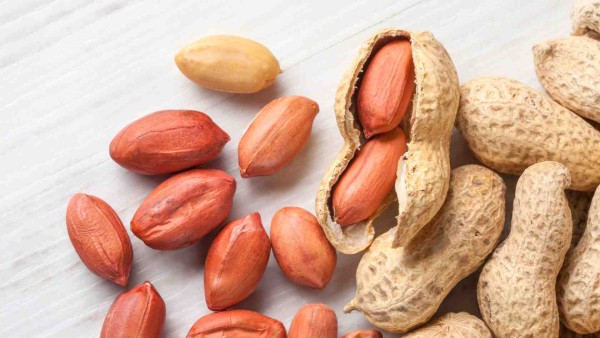Madhya Pradesh, a state renowned for its fertile lands and thriving agricultural practices, presents a golden opportunity for entrepreneurs venturing into the exciting realm of peanut processing. With a vast network of peanut-producing farms and a growing demand for processed peanut products both domestically and internationally, establishing a peanut processing plant in this region can be a venture with immense potential.
Demand Devouring Distance:
India is the world's largest producer of peanuts, and Madhya Pradesh stands as a significant contributor to this impressive output. This abundance of raw material fuels a thriving market for processed peanut products, ranging from simple roasted peanuts to value-added items like peanut butter, peanut oil, and peanut snacks. The growing health consciousness among consumers has also led to a demand for functional peanut products, such as low-fat and high-protein options.
Raw Material Availability and Sources:
Madhya Pradesh boasts a robust peanut production system, with a network of over 2 million hectares dedicated to peanut cultivation. Sourcing fresh peanuts from these farms is relatively straightforward and can be achieved through direct partnerships with farmers or through aggregators.
Processing Techniques:
A peanut processing plant typically involves a series of steps to ensure the safety, quality, and preservation of the peanuts. These steps include:
-
Grading: Peanuts are graded based on size, color, and quality.
-
Cleaning: Peanuts are cleaned to remove dirt, debris, and foreign matter.
-
Roasting: Peanuts are roasted to enhance their flavor and remove moisture.
-
Hulling: Peanuts are hulled to remove their outer shells.
-
Blasting: Peanuts are blasted with hot air to remove any remaining hull fragments.
-
Peeling: Peanuts are peeled to remove their inner skins.
-
Sorting: Peanuts are sorted to remove any damaged or defective kernels.
-
Packaging: Peanuts are packaged in various containers, such as bags, jars, or cans.
Machinery Requirements:
A peanut processing plant requires a range of machinery to handle the various stages of processing. These include:
-
Grading machines: To grade peanuts based on size, color, and quality.
-
Cleaning machines: To clean peanuts to remove dirt, debris, and foreign matter.
-
Roasting machines: To roast peanuts to enhance their flavor and remove moisture.
-
Hulling machines: To hull peanuts to remove their outer shells.
-
Blasting machines: To blast peanuts with hot air to remove any remaining hull fragments.
-
Peeling machines: To peel peanuts to remove their inner skins.
-
Sorting machines: To sort peanuts to remove any damaged or defective kernels.
-
Packaging machines: To package peanuts in various containers, such as bags, jars, or cans.
By-Products:
Peanut processing generates valuable byproducts that can be further processed or used as animal feed. These include:
-
Peanut shells: Used in animal feed and fertilizers.
-
Peanut oil: Used in cooking, cosmetics, and pharmaceuticals.
-
Peanut cake: Used in animal feed and protein-rich supplements.
Value-Added Products:
To stand out in the market, peanut processing plants can produce value-added products, such as:
-
Peanut butter: A creamy and versatile spread made from ground peanuts.
-
Peanut oil: A versatile cooking oil with a rich flavor and high smoke point.
-
Peanut snacks: A variety of roasted, salted, and flavored peanuts.
-
Peanut flour: A nutritious flour made from ground peanuts, suitable for baking and cooking.
Preservation Methods:
Processed peanut products can be preserved using various methods, including:
-
Refrigeration: For short-term storage.
-
Freezing: For long-term storage.
-
Canning: For the longest shelf life.
Nutritional Value:
Peanuts are a nutritional powerhouse, packed with protein, fiber, healthy fats, vitamins, and minerals. Processed peanut products retain most of these nutrients, making them a nutritious addition to a balanced diet.
Packaging Methods:
Proper packaging is crucial for preserving the quality and safety of peanut products. Common packaging materials include:
-
Plastic bags: For fresh peanuts and peanut snacks.
-
Glass jars: For peanut butter and other shelf-stable products.


